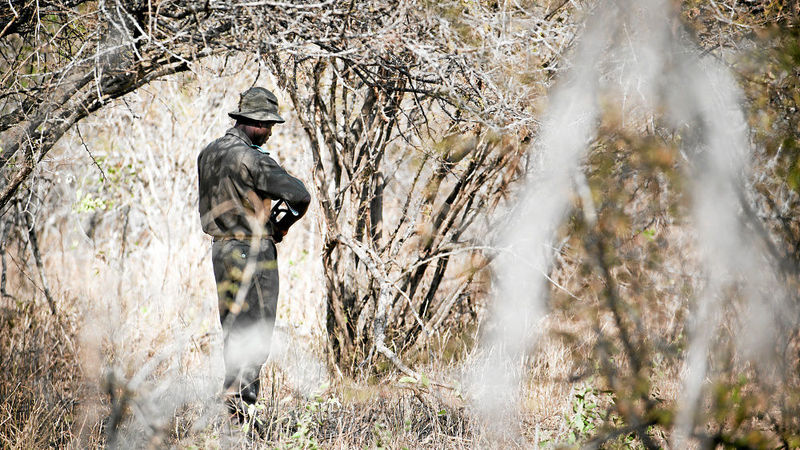Latest bid to shift criminal cases from Skukuza court in Kruger Park attracts renewed criticism – The Mail & Guardian
The Skukuza court is situated in Kruger National Park.
The regional court president of Mpumalanga, Naomi Annette Engelbrecht, is facing renewed criticism for her latest attempt to transfer criminal cases from the Skukuza regional court — the country’s flagship court for rhino poaching cases — to Hazyview.
The Lowvelder reported this month that Engelbrecht’s move in February to transfer the cases had sparked widespread confusion. It has since emerged that on 6 March, Mpumalanga’s judge president, Segopotje Sheila Mphahlele, issued a directive in terms of the Superior Court Act that no cases can be transferred from Skukuza to Hazyview.
“All criminal matters that have been transferred from the regional court sitting in Skukuza to Hazyview regional court, shall be transferred back to Skukuza to be dealt with and finalised at the Skukuza regional court,” read the directive, which was addressed to Engelbrecht, the province’s chief magistrate and Mpumalanga’s director of public prosecutions.
“No matters shall be transferred from Skukuza to Hazyview or any other court seat without authorisation by this office,” Mphahlele said, adding that the directive would remain in force until revoked or amended in writing by her office. According to the Lowvelder, all cases have been transferred back to Skukuza.
The Skukuza court is situated in Kruger National Park. South African National Parks (SANParks) said it was “taken by surprise” by the latest move from Engelbrecht.
This was “especially since it was not consulted on the intended move by the regional court president or even formally informed as the main victim of crime in the Kruger National Park”, said Isaac Phaala, the spokesperson for the Kruger National Park.
Phaahla said SANParks was grateful to the judge-president for reversing the intended move because “there is the constitutional court ruling in the previous attempt to close the court”.
“We can only thank the intervention of a higher authority in the matter and hope the directive she [Mphahlele] issued will be honoured by all officials who will occupy the office of the regional court president.”
In October 2019, Engelbrecht decided to close the Skukuza regional court because she wanted to move all cases scheduled for Skukuza to the Mhala circuit court, 100km away. She faced opposition from the now-retired Mpumalanga high court president, Judge Francis Legodi, and the national director of public prosecutions.
At the time, the planned closure sparked a huge public outcry, and a petition to open the court launched by the nonprofit StopRhinoPoaching.com was supported by NGOs including the International Rhino Foundation and Save the Rhino. It ultimately garnered more than 163 000 signatures.
Legodi enrolled a special review application to be adjudicated by the full bench of the Mpumalanga high court on 24 February 2020 to determine whether Engelbrecht was entitled to close the court.
The special review judgment issued on 22 April 2020 by the high court in Nelspruit ordered that the Skukuza court be reopened. The judgment was notably critical of Engelbrecht’s conduct, noting that it “resulted in actual, and potential harm, to the administration of justice”.
But Engelbrecht did not re-open the court as instructed. Instead, she took the matter to the supreme court of appeal, where her leave to appeal was turned down. On 1 February 2021, the constitutional court dismissed Engelbrecht’s application for leave to appeal the high court decision, and allowed the court to continue operating inside the park. The revamped court was reopened in April that year.
The Skukuza regional court is world-renowned for its fundamental role in bringing justice to rhino poaching crimes, said Elise Serfontein, the founding director of StopRhinoPoaching.com.
“Why then, would the regional court president, whose responsibility it is to ensure its effective operation, be so persistent in her attempts to close it down?,” Serfontein said.
“Engelbrecht’s deliberate circumvention of procedure and blatant disregard for the constitutional court’s ruling, which upheld the operation of the Skukuza regional court within Kruger National Park, raises serious concerns. Again, her actions invite pressing questions about her true motives.”
The Skukuza court is important to the Kruger National Park in the campaign against poaching of any kind and criminality in the park, Phaala said.
“It has capable court officials [and] a diligent prosecutor who compiles and provides compelling evidence during trials. The court has a 100% conviction rate and metes out harsh sentences to convicted criminals ranging from 55 years to at least 15 years direct imprisonment,” he said.
“It is the safest court in the country and as an organisation we have planned for witnesses, suspects, and their legal teams not to have access problems at the gate. The trial witnesses are mostly rangers who travel long distances and feel safe to testify in Skukuza.”
The Skukuza court has been extremely effective at holding rhino poaching gangs accountable for their crimes, noted Nina Fascione, the executive director of the International Rhino Foundation.
“Black and white rhinos are still very threatened in South Africa, and we’re deeply alarmed that these criminal syndicates may not be appropriately prosecuted if their cases are moved to Hazyview,” she added.
Serfontein cited the high court in Nelspruit’s special review judgment as being particularly critical of Engelbrecht’s conduct, saying that it had actual and potential harmful consequences to the administration of justice.
“Despite the declaratory order including that a copy of the judgement be sent to the Magistrates Commission, it is not known if any disciplinary actions were taken against her,” Serfontein said.
Neither Engelbrecht nor the commission responded to questions from the Mail & Guardian.
Crédito: Link de origem


